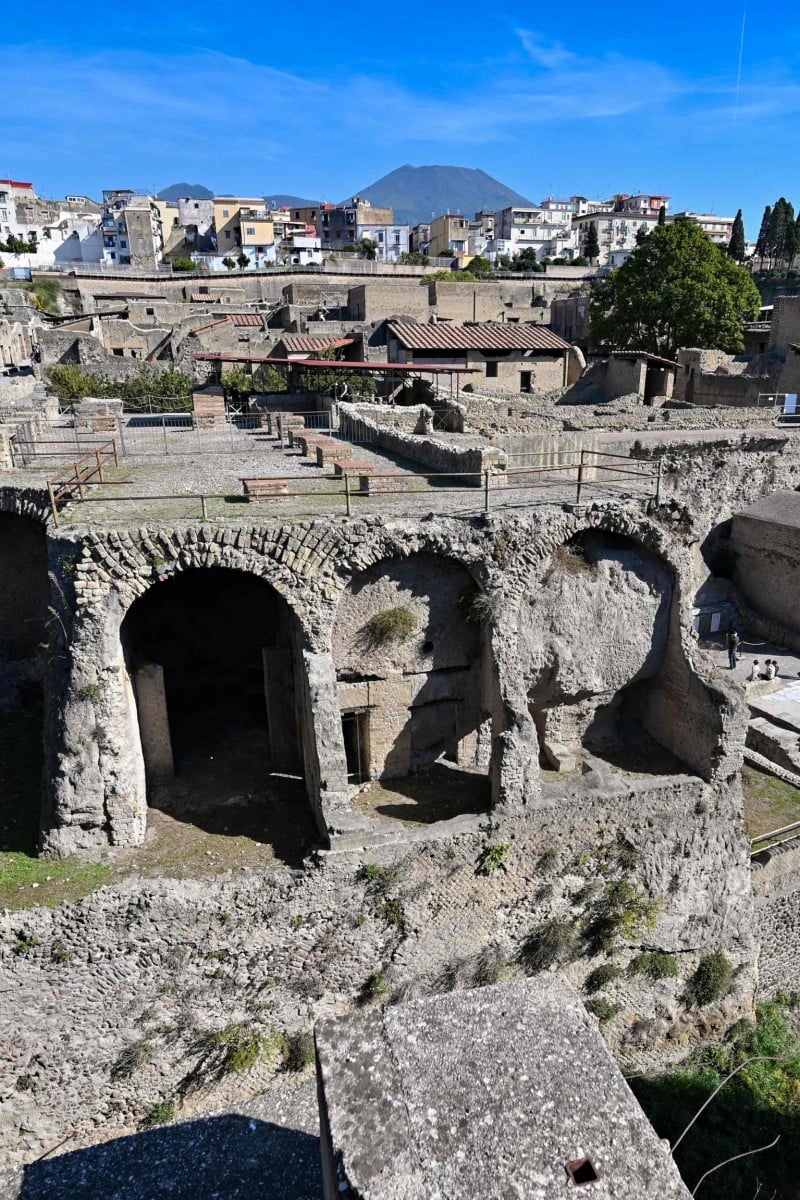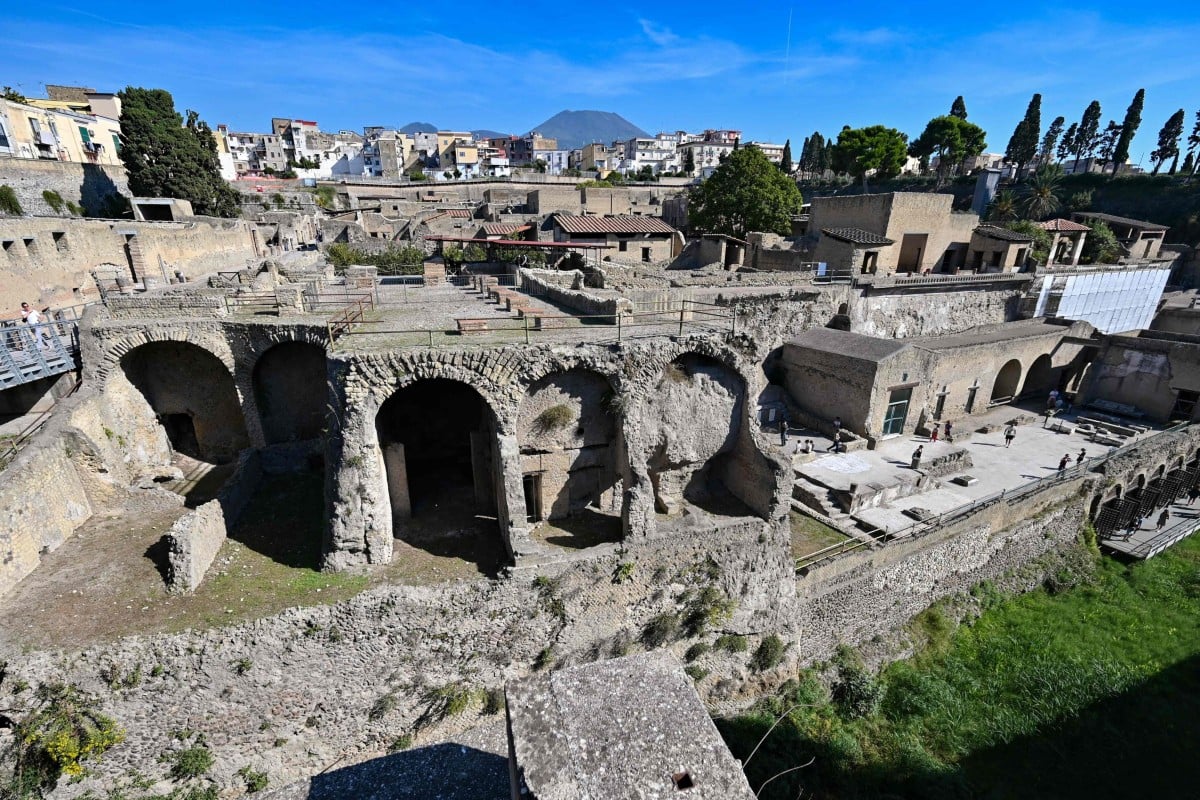
Scientists explain how volcanic ash turned a human brain into glass
Learn how the eruption of Mount Vesuvius in AD 79 transformed one unfortunate Herculaneum resident’s brain into organic glass
 A view of the archaeological site of Herculaneum in Ercolano, near Naples, Italy, with the Mount Vesuvius volcano in the background. Photo: AFP
A view of the archaeological site of Herculaneum in Ercolano, near Naples, Italy, with the Mount Vesuvius volcano in the background. Photo: AFPAlmost 2,000 years ago, a young man was lying in bed when a hot cloud of ash swept down from Mount Vesuvius, an erupting volcano. This may have turned his brain into glass.
Italian scientists have put forward this theory to explain the strange case of this ancient Roman’s brain. They have said this is the only known case of human tissue naturally changing into glass.
A famous natural disaster
Mount Vesuvius erupted in the year 79. It buried the cities of Pompeii and Herculaneum under a rapidly moving flow of rock and ash called a pyroclastic flow.
Many bodies have been found at the sites. They have been preserved as if they are frozen in time. They give us a valuable look at the daily life of ancient Rome.
A unique brain could rewrite the story
Herculaneum was an ancient Roman town. In the 1960s, a young man’s burnt body was found on a wooden bed there. He was in a building used to worship Roman Emperor Augustus.
Italian anthropologist Pier Paolo Petrone is a co-author of the new study. He noticed something shiny in the man’s broken skull.
What was left of the man’s brain had changed into fragments of shiny black glass.
When the researchers examined the glass with an electron microscope, they found something amazing. The study revealed that complex parts of the man’s brain and spinal cord were preserved in the glass.
How did it happen?
It is a mystery. The study reports that the Roman’s brain is preserved in glass. It is the only known case of this for any human or animal tissue.
The scientists determined that the brain must have experienced temperatures above 510 degrees Celsius. That is hotter than the pyroclastic flow that buried the city, which reached 465 degrees. For the brain to be preserved, it needed to cool down quickly before the flow arrived.
The study says the only possible explanation is that an ash cloud from Vesuvius delivered a hot blast before quickly disappearing. This theory is supported by a thin layer of ash that settled in the city before it was covered by the pyroclastic flow.
Why was this man the only one to have a glass brain?
Unlike Pompeii, Herculaneum had some time to respond to the eruption. All the other bodies discovered there were trying to flee into the Mediterranean Sea.
The man is thought to have been the guardian of the Collegium building and stayed in bed in the middle of town. He may have been the first to be hit.
Why is it impossible for the human brain to turn into glass?
Glass rarely forms in nature because it requires extremely hot temperatures to cool so rapidly that there is no time for crystallisation. Glass in nature is usually caused by meteorites, lightning or lava (see graphic).
Lava is rich in a rock material called silica. When it cools down rapidly, it forms obsidian. This is a natural volcanic glass. This process is very unlikely to happen to human tissues because they are mostly made of water.